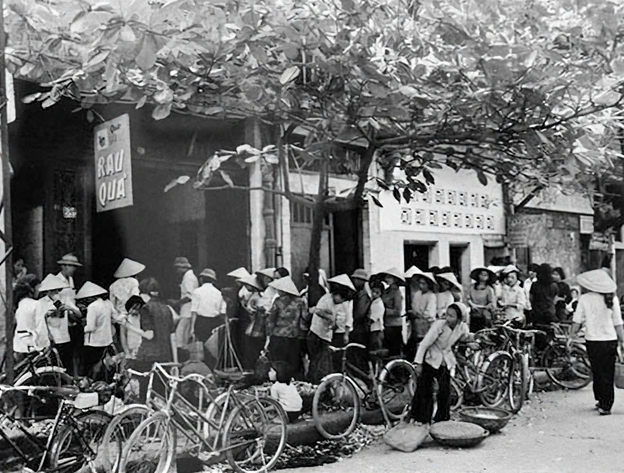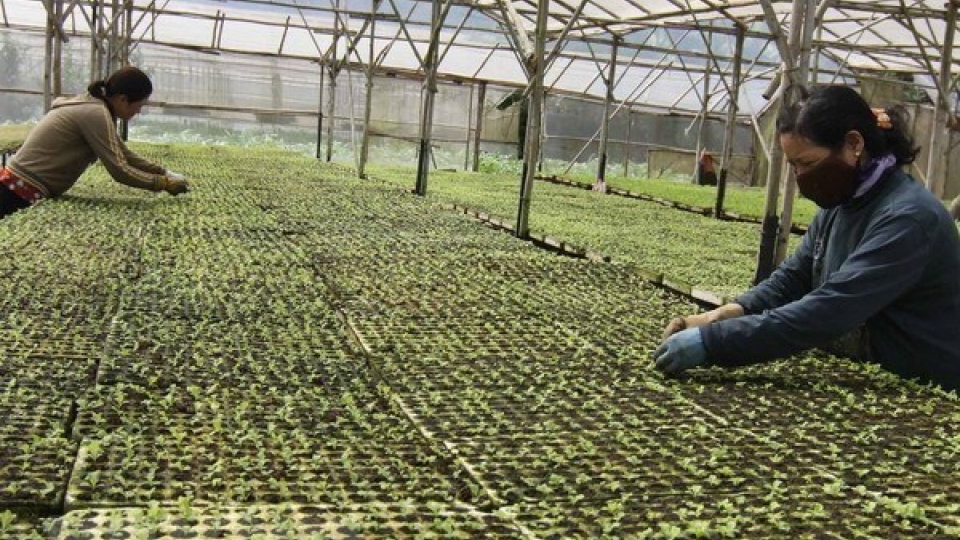From cooperatives to millions of Vietnamese enterprises
Vietnam’s economic situation changed significantly after the 6th National Party Congress, with decisions to remove production bottlenecks, ease circulation of goods, and adopt a multi-sectoral economic policy. In particular, opening the door for private enterprises to develop freely in all sectors not prohibited by law helped transform the economy.

Up to 250 projects with total investment of over VND1.28 quadrillion (US$48.65 billion) have recently been simultaneously launched or inaugurated across the country, many of which are carried out by Vietnamese private enterprises. From a cooperative-based economy to today’s community of nearly one million businesses, this has been a eight-decade journey of overcoming hardships and rising strongly of the Vietnamese economy.
Vietnam’s economic situation changed significantly after the 6th National Party Congress, with decisions to remove production bottlenecks, ease circulation of goods, and adopt a multi-sectoral economic policy. In particular, opening the door for private enterprises to develop freely in all sectors not prohibited by law helped transform the country’s economy.
Economist Pham Chi Lan recalled that after the complete liberation of the South, there had been hopes of a rapid recovery, but Vietnam soon faced the northern and southwestern border wars. On top of that, the consequences of the previous war were severe, leaving the country with almost no resources to rebuild. Meanwhile, the US embargo discouraged many countries from cooperating with Vietnam. Therefore, even after the 6th National Party Congress, economic changes remained limited. Only in 1987, with the promulgation of the law on foreign investment and the opening of the economy, did real transformation begin.
Following the country’s economic development closely, the expert highlighted the milestone year of 1999, when the enterprise law was enacted with a groundbreaking, progressive mindset. Instead of limiting people to activities permitted by the state, the new law allowed all citizens to engage in any business not prohibited by law. This unleashed bottlenecks for the private sector.
Lan noted that it was a major step in realising the constitutional right to freedom of business. Within two years, the number of private enterprises surpassed the total of the previous ten years. The strength of the private sector was evident. Despite the 1997 Asian financial crisis, Vietnam still managed growth thanks to domestic resilience. From 2000 onwards, the economy gained momentum, and today has nearly one million businesses along with over five million household businesses, she assessed.
Today, many Vietnamese companies have risen to global rankings or led the Association of Southeast Asian Nations (ASEAN) in various fields, including Vingroup, Viettel, Hoa Phat, Vinamilk, Vietjet, Masan, and Thaco. Beyond taking Vietnamese brands abroad, leading entrepreneurs have also entered the ranks of the world’s wealthy.
According to Lan, Resolution 68 issued the Politburo this year clearly identifies the private economic sector as a key driver of the economy, placing it at a higher position than before. This differs from the earlier policy of developing a multi-sector economy. Notably, following Resolution 68, the Prime Minister met with major enterprises and announced plans to assign large projects, such as the North–South high-speed railway, to them.
This is a major departure from the past, Lan said. Even after the 1999 enterprise law, the government still only entrusted major projects to state-owned enterprises or foreign firms. Such a shift in mindset by the Party and Government will propel the sector in particular, and Vietnam in general, to stronger development in the new era, she affirmed.
Sharing the same view, Prof. Dr. Vo Dai Luoc, former director of the institute of world economics and a rare economic expert who has advised multiple generations of Party and Government leaders, noted that Vietnam has gone through many stages of economic development – from the toughest periods to today’s path toward industrialisation and high technology.
Achievements such as Vingroup producing humanoid robots, CT Group manufacturing unmanned aerial vehicles, and Hoa Phat making steel for high-speed railways demonstrate that Vietnamese enterprises have grown strong enough to master cutting-edge technologies. Policies promoting the private sector's development and advancing science, technology, and innovation from the Politburo represent the next critical shift in mindset for Vietnam’s economy to break through.



